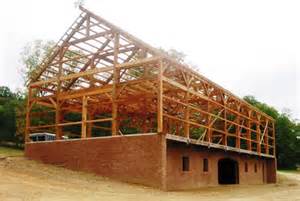By Bill Naron
The word gospel appears in the New Testament over 75 times. Most of the times this word is used, it is accompanied by words such as preach, publish, and heard. So, is the gospel really a thing that is “lived” out, or is it something to be proclaimed and maybe preached on street corners?
Here is where I would like to challenge our mindset just a little bit, and I would like to give another perspective on this idea. First, let’s define what we are talking about—it is the gospel. The word gospel is defined in the dictionary several ways. The first definition is “the teaching or revelation of Christ.” Gospel is the Good News! It is in its very essence the announcement that Jesus was born and that He performed miracles, lived a blameless life so He could go to the cross and pay the price for our sins, then rose from the grave, defeating hell and death (1 Cor. 15:1-4; Romans 1:16).
This is powerful stuff, but we cannot literally live the proclamation of Jesus and who He is; we can only live in the transformative implications of the gospel. That is, we live differently after coming to salvation because of the work that the gospel does in our lives.
Jesus is the very central point of the gospel. He is the Good News. When we are raised to new life in Christ, we live differently. Paul mentions this in Romans 12, when he says to not be conformed to the world but to be transformed by the renewing of your mind. In John, Jesus talks about how He has chosen us out of the world, calling us to live a life that is set apart from the world. I am presenting that the change in living our lives differently is only the start of our faith journey. We are then called to verbally share the Good News and express who Christ is and how the truth of Scripture has affected our lives.
Therefore, in doing so will onlookers be provoked to question our faith. 1 Peter 3:15 says, “But sanctify the Lord God in your hearts: and be ready always to give an answer to every man that asketh you a reason of the hope that is in you with meekness and fear.” In this Scripture, Peter is not asking us to be prepared to invite people to church on Sunday or even stating that only pastors need to be prepared to give an answer to those who inquire. Instead, he challenges every follower of Christ to be prepared to give a response when asked the reason for the hope that is within him.
We are a people who have been set apart and chosen out of the world; embrace that identity and live into it. You have been chosen to partake in work that is far greater than you could even imagine. You have been chosen to go forth into your community to preach the Good News of Jesus. Understand with clarity that Jesus calls you friend so, therefore, you know what God the Father and Christ are doing. Understand with clarity that you are covered in His righteousness and that the old is gone and the new has come.
So, let us go out to the world that is so dark, and let us be lights. Live a life and faith that is set apart from the world and let us also be megaphones for Jesus. Speak kindly and talk constantly about the goodness of the Lord in our own lives. Then when someone asks about the hope that they see in us, we should also be willing and able to engage in that conversation. This is the Great Commission.
Views – 133

 Follow
Follow

